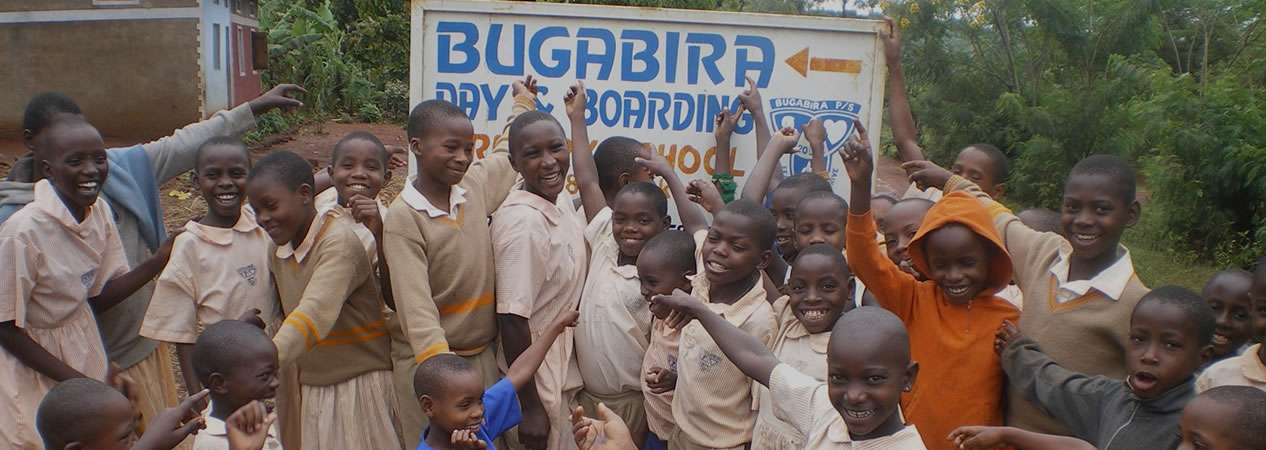Introduction
CHEDRA collaborates with Rakai Health Science Program (RHSP) through implementing an integrated DREAMS and OVC project whose goal is Reducing HIV incidence among Adolescent girls and Young Women (AGYW) aged 10-24 and increasing the proportion of OVCs accessing and adhering to comprehensive HIV care services in Masaka District through implementation of targeted, user-friendly, innovative, evidence-based, efficient, and sustainable differentiated service models for increased demand, linkage, retention, and adherence to HIV services. DREAMS programming aims at reducing HIV incidence among Adolescent girls and Young Women (AGYW), reaching the most at risk and most vulnerable AGYW categorized as girls in school (10-14), married (15-19), pregnant (15-24), given birth (15-24) and involved in transactional sex (15-24) by implementing interventions that reduce HIV risk in these categories.
CHEDRA also targets partners and potential partners of AGYW under the categories of uncircumcised men aged 15+ year and HIV+ men not in care aged 15+ years. OVC interventions categorized as Economic strengthening, Food and Nutrition Security, Health Access & promotion, Education support, Child protection &legal support will aim at Increasing the proportion of OVCs accessing and adhering to comprehensive HIV care services, targeting OVCs, and/or their care givers, HIV exposed infants, pregnant adolescents 12-17 years, Children with non-suppressing viral load, Children of commercial sex workers, HIV positive children, Sexually abused children. The project works to ensure that OVCs are schooled, health, stable and safe. Both DREAMS and OVC activities are designed in harmonized and integrated fashion to achieve Early impact and graduation, Effective Service Layering, and High-Level Quality Assurance. Our technical approach is premised on three broad strategies; Empower AGYW to reduce HIV infection, Mobilize families and communities for change, Strengthening health and community systems for AGYW HIV prevention interventions.
ACTIVITY: DISTRIBUTION OF FARM INPUTS KATWE BUTEGO FOR SUB-COUNTY:
During this month of December 16 households mostly those that have children with high viral load were given farm inputs and were trained in nutrition education and they were well convinced on how to obtain the food that is necessary for their children’s health and growth. In this training the nutritionist explained to the participants on how local food stuffs are so important to build body systems for resistance against diseases because of the high vitamin content provided in natural form, the facilitator also taught the caregivers on how to feed the OVCs with different kinds of food.
During the training emphasis was also put on effective utilization of land available to produce different food stuffs which will improve the balanced diet and how OVC caregivers can consider and use the small piece of land available and plant the nutritional crops and apply the local fertilizers to improve crop yield and quality.

Above: The Nutritionist training caregivers in katwe butego subcounty.
Top: Beneficiaries receiving farm inputs in katwe butego subcounty
After the training there was distribution of farm in-puts to trained caregivers so that they can use them to implement household food and nutrition projects to feed children on a balanced deity for better health. The following are the items that were distributed.
| NO | ITEM | QUANTITY RECEIVED |
| 1 | Tin of sukuma wiki, | 1 tin |
| 2 | Tin of eggplant | 1 tin |
| 3 | Tin of doodo | 1 tin |
| 4 | Watering can | 1 |
| 5 | Hoe | 1 |
| 6 | Supercyper | 1 |
| Vegmax | 1 |
HERE ARE THE BEFICIARIES WHO RECEIVED FARM INPUTS
| NO | BENEFICIARIES | HOUSEHOLD NUMBER | VILLAGE |
| 1 | Namutebi Masturah | KB/030 | Ssaza |
| 2 | Ssalongo Bukenya | KB/148 | Kitabaazi |
| 3 | Lukyamuzi Marvin | KB/015 | Butego |
| 4 | Nanyonga Gatrude | KB/163 | Kiyimbwe |
| 5 | Nakintu Teddy | KB/156 | Ssaza |
| 6 | Ssenyonga Robert | KB/078 | Butego |
| 7 | Nakachwa Yeremina | KB/001 | Butego |
| 8 | Nansikombi Evelyne | KB/051 | Butego |
| 9 | Nalongo Ruth Nassonko | KB/003 | Butego |
| 10 | NakyambaddeAnnet | KB/007 | Butego |
| 11 | Nabanda Slyvia | Butego | |
| 12 | Namukasa Jane | KB/167 | Butego |
| 13 | Nanyonjo Hasifah | KB/019 | Butego |
| 14 | Wanyana Cate | KB/075 | Bwala |
| 15 | Nakiganda Sidona | KB/153 | Butego |
| 16 | Nakalema prossy | KB/176 | Butego |
Achievements: The household caregivers were grateful for the training and promised to put what was taught to them in consideration as far as improving the nutrition and food security is concerned. All the 24 caregivers attended the training and during the training there was active participation and contribution from the participation.



